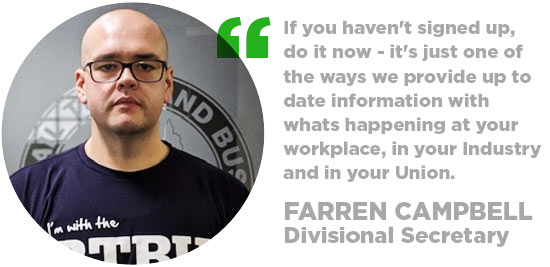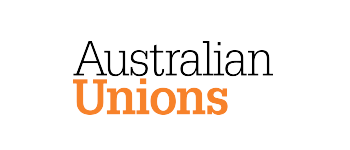History
On the 1st of March 1993 the A.F.U.L.E. after an historical 73% Yes vote of the membership, crossed the traditional industrial barriers and joined with the A.R.U, N.U.R.W.A & A.T & M.O.E.A to form the Public Transport Union.
In the Beginning
The NSW Locomotive Engine Drivers, Firemen and Cleaners Association was formed in 1883 and continued to function as a NSW based association, with no National affiliation until 1900. Whilst contact was established between various associations in other states (a natural development), this was mostly due to loco drivers performing the same type of work and also because they mostly all originated from Great Britain.
This loose federation continued until 1900, around the same time the Constitution for what was to become the Commonwealth of Australia in 1901, was drawn up. It was the drive for Federation which brought the creation of a central government in Australia in 1901. The same drive among locomotive men brought the creation of “The Federated Railway Locomotive Enginemen’s Association of Australasia” in 1900.
On October 2nd 1891 representatives of the Railway Locomotive Enginemens Association of NSW, SA, QLD & VIC met in Melbourne and decided to conduct a ballot of their members with a view to forming The Federated Railway Locomotive Enginemen’s Association of Australasia. The ballot conducted was an almost unanimous vote by the membership in favour of the proposition and the Federation was formed at a meeting in Melbourne on October 1st 1900.
Laying the Foundations
 |
Annual conferences of the Federated Association were held from that point on and at the 1919 conference held in the Trades Hall, Adelaide it was decided to form a “Locomotive Brotherhood of Engineers of Australia” and that the next conference to be held in Brisbane in 1920 would lay the foundations for the National Union. The decision was unanimous.At the Brisbane conference the resolution to register a Union of Australian Locomotive Enginemen titled “The Australian Federated Union of Locomotive Enginemen” was moved by New South Wales delegate Ben Chifley and carried unanimously. It was mainly the work of Arthur Drakeford who organised the court proceedings, that lead to it’s successful conclusion.
In 1922 at the Federal Conference the New South Wales Branch is recorded as having a membership of 233, so the next important task was to re-organise the force of the N.S.W Division so sadly shattered and divided by the 1917 Strike (see main history). In the middle of 1923, Arthur Drakeford devoted 3 months to re-organising, holding 50 meetings and travelling 5000 miles in NSW. The result was that the membership in the next year jumped to several thousand & reached 2573 by the end of 1923, & by 1924, over 90% of the available membership had enrolled with the AFULE.
The union affiliated to the Australian Labour Party in 1923.
The New South Wales Branch was granted a Federal Award on March 25th 1925, along with Victoria, Tasmania and the Commonwealth Government’s Trans Australian Line. The effect of this was to standardise the margins for skill and responsibility in 4 of the Divisions of the Union. The judgement excluded the Queensland Commissioner from the award and the electric train drivers in Victoria.
Milestones from 1930’s to the 1990’s
On October 4th, 1930 the Full Commonwealth Court set aside all awards, due to the financial crisis in the railways. This was as a result of an application from the commissioners of New South Wales, Victoria & Tasmania. The Unions appealed to the High Court but were unsuccessful, with some interesting names appearing at the appeal. These being Dr.H.V.Evatt K.C. for the Commonwealth Government & Mr.R.G. Menzies K.C. for the Tasmanian Railway Commissioner.
On the 29th January 1943 the New South Wales Locomotive Division was granted a State Award and incorporated the superior Federal Award provisions which the Union had sought.
On October 28th 1968 the A.F.U.L.E. took action as a National Union for the first time and caused the first national rail strike in Australia’s history. The strike being in relation to Wage and Condition relativity.
On the 18th, 19th & 20th January 1993 a Special and Final A.F.U.L.E Australian Council meeting was held, to discuss the A.F.U.L.E’s move into the P.T.U. At this meeting the General Secretary, Allan Barden, made the following comment “the resounding results of the ballot clearly signals that all members are concerned about their future, the future of public transport and the need for unity of purpose.”
Amalgamation
On the 1st of March 1993 the A.F.U.L.E. after an historical 73% Yes vote of the membership, crossed the traditional industrial barriers and joined with the A.R.U, N.U.R.W.A & A.T & M.O.E.A to form the Public Transport Union. Thus drawing to an end 132 years of proud union history of the A.F.U.L.E, but commencing another proud part of our history as the Locomotive Division within the Public Transport Union, now the Rail, Tram & Bus Union, a true and strong Industry Union.
In recognition of our amalgamation into the PTU the NSW Locomotive Division commissioned a special limited edition Certificate, which was issued to every past & current member of the AFULE at the time of amalgamation.
It was also decided to have the original badge of the NSW Locomotive Engine Drivers, Firemen & Cleaners Association re-struck in both sterling silver and gold (on special order).

AFULE Commemorative Certificate issued in 1993
The NSW Locomotive Division plays an integral part within the R.T.B.U, representing the aims and visions of its membership into the future. The division continues to cover approximately 98% of all eligible Enginepersons within both the private & public sectors of our Industry. Our history continues.
“THOSE WHO ALWAYS LOOK INTO THE PAST NEVER SEE THE FUTURE”




